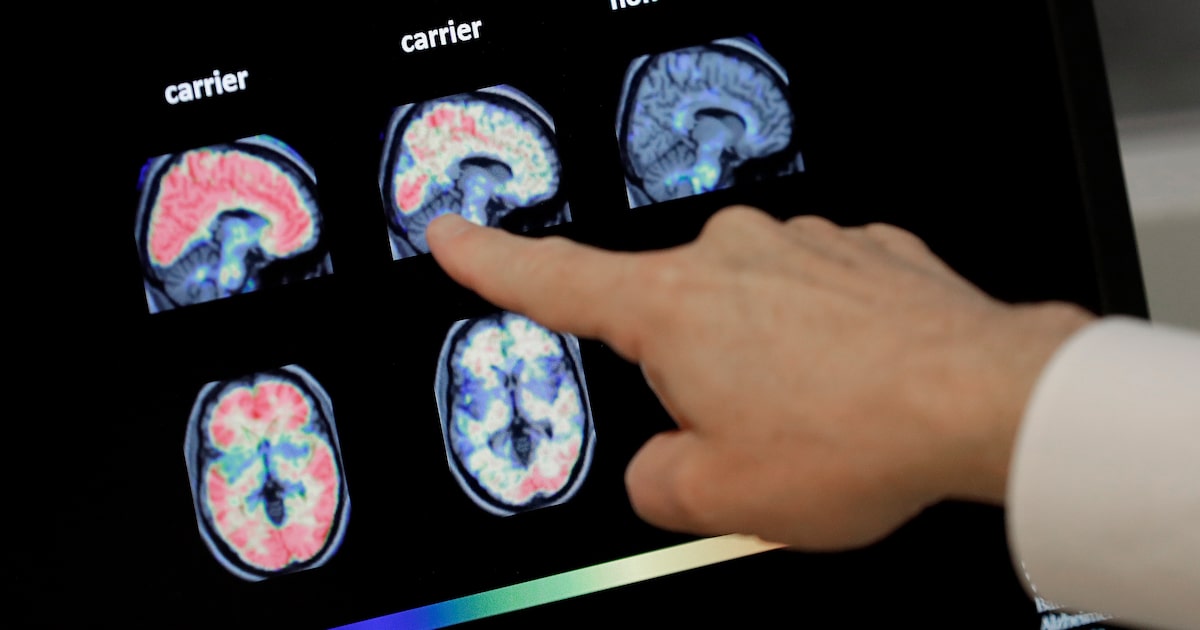One constitutional amendment on the ballot in this year’s November election would create a new state-funded institute for dementia prevention and research.
Proposition 14, if approved by voters, would pull $3 billion from the state’s general revenue. That allocation would fund the new Dementia Prevention and Research Institute of Texas for a decade.
Voters will decide this fall on 17 amendments to the state constitution. It’s important to understand how the amendments will impact day-to-day life in Texas before votes are cast. Election Day is Tuesday, Nov. 4, early voting opens Monday, Oct. 20.
Dementia is an umbrella term that describes cognitive decline, such as memory loss. It can be caused by a number of different things, but Alzheimer’s disease is the most common form of dementia.
More than 450,000 older Texans are living with Alzheimer’s disease, according to 2020 data from the Alzheimer’s Association. That amounts to about 12% of the state’s 65-and-older population.
Breaking News
The Alzheimer’s Association has launched a campaign urging Texas voters to approve the institute’s funding.
“We know that dementia and Alzheimer’s is a growing crisis in Texas,” said Joanne Pike, president and CEO of the Alzheimer’s Association.
“A ‘yes’ vote on Prop 14 gives us the opportunity to accelerate research, but also how we provide treatment care for Texans today,” she said.
If passed, the proposed institute would aim to turn Texas into a national leader in dementia research, and attract researchers and medical providers to the state.
Kimberly Knight, a director at The Senior Source in Dallas, said that could give Texans easier access to top dementia specialists and early access to experimental treatments.
“It puts us in a position to really kind of chart the course for what a cure looks like, what prevention methods look like,” Knight said.
The creation of the dementia institute earned bipartisan support during this year’s Legislative session. The bill was carried by Sen. Joan Huffman, R-Houston, with dozens of other lawmakers signing onto the bill as either co-authors, sponsors or co-sponsors.
However, a handful of lawmakers — such as State Rep. Brian Harrison, R-Midlothian — raised concerns about the $3 billion price tag and the expansion of state government.
The bill overwhelmingly passed both the Senate and the House. Lt. Gov. Dan Patrick applauded the passage of the bill, which he had named as one of his priorities for the session.
‘Driving that forward’
DPRIT would be modeled off CPRIT, the Cancer Prevention and Research Institute of Texas, which has been an engine for cancer research since its creation in 2007. Since then, CPRIT has become the second-largest public funder of cancer research in the country. Texas’ institute is second only to the federal government’s National Cancer Institute.
Kristen Doyle, CEO of CPRIT, said the cancer institute has recruited leading experts and brought them to Texas, and has invested in expensive equipment and other resources to bolster the existing research being done in the state.
“All of these things are increasing the resources that are available in Texas, both from brainpower and equipment,” Doyle said, “and truly driving that forward.”
While DPRIT would likely differ from its predecessor in some key ways — including the structure of its funding — advocates hope the project can follow the cancer institute’s success.
First, though, voters must decide if they want to fund the dementia institute.

